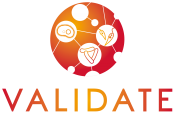VALIDATE for Schools

VALIDATE provides school students around the world with an exciting opportunity to engage with leading scientists from around the world who work in vaccine research.
About the School Talks
VALIDATE is an international network of over 650 researchers who are working to develop vaccines against tuberculosis, leishmaniasis, melioidosis, and leprosy. In the VALIDATE for Schools talks, our world-leading researchers discuss their science careers and their fascinating research with young people, to encourage students to find out more about the many interesting careers available in STEMM (Science, Technology, Engineering, Maths and Medicine).
The talks can be either in-person events, or online via MS Teams (with the Q&A taking place using the chat function for the latter).
Who are they for?
The talks are suitable for most students but will be most relevant for 13-18 years olds, and of particular interest to those interested in pursuing a career in any STEMM field or biomedical research.
Previous VALIDATE for Schools Talks
Watch Now!
VALIDATE Members Prof Helen McShane and Dr Rachel Tanner sat down with hundreds of school children across the UK to talk about their science careers and vaccine research. Schools included Chipping Campden School, Harris Academy Greenwich, Hautlieu School, Maria Fidelis Catholic School, Moreton Hall School, Ormiston Rivers Academy, Pontypridd High School, Hawthorn High School, Blessed Hugh Faringdon, Copthall School, and Wheatley Park School.
The Speakers
Prof Helen McShane is the VALIDATE Network Director; Director of the Oxford NIHR Biomedical Research Centre; Professor of Vaccinology at Oxford University; Deputy Head (Translation and Personnel), Medical Sciences Division; and an Honorary Consultant Physician in infectious diseases. Since 2001, Helen has led a TB vaccine research group at the University of Oxford. She collaborates with several research groups across Africa in TB vaccine clinical trials.
Dr Rachel Tanner is a member of VALIDATE's Network Management Board and a Postdoctoral Researcher at the Jenner Institute, University of Oxford. Rachel is also a VALIDATE Fellow and a Lecturer in HumanSciences. Rachel's research focuses on the antibody response to TB vaccination and she has an interest in finding ways to reduce the use of animals in TB vaccine testing. She has also been helping recently with the Oxford COVID-19 vaccine trials.
Pathways to becoming wildlife researchers
Event details:
Speakers: Dr Wynand Johan Goosen & Prof Michele A Miller
Date: 11 May 2021
Time: 10am GMT/11am SAST
Description: Michele and Wynand discussed the very different paths each took to follow their passion and become wildlife researchers. Students heard stories on how different people followed their professional dreams to become scientists that contribute to understanding the links between animals, humans and environmental health.
The Speakers:
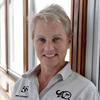
“Prof Michele A Miller studied immunology and received her Masters and PhD before going to veterinary school. With her interest in wildlife (despite growing up in the US), she was able to do additional training at San Diego Zoo, then went on to work at several zoos in the U.S. (Los Angeles Zoo, Busch Gardens, Disney’s Animal Kingdom, Palm Beach Zoo). Her passion for African wildlife led her to develop research projects in South Africa and in 2013 became a Research Chair in Animal Tuberculosis at Stellenbosch University. Currently, she is based full-time in Kruger National Park. She uses her training in research and veterinary medicine to design studies that will improve the health and our understanding of wildlife.
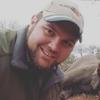
Dr Wynand Goosen grew up in a small town called Grahamstown in South Africa. Surrounded by various rural communities, livestock, and wildlife parks he was exposed to various disease management strategies due to the frequent interactions between communal livestock, wildlife, and humans. This inspired him to explore why such measures are necessary. During his quest for answers, he approached well-known international researchers who work with diseases that can jump between animals and humans which cause sickness and even death. This led to his studies in Molecular Biology and later receiving his PhD, before pursuing a career solely focused on finding answers and better understanding such strange diseases. He now works with Prof Michele Miller at Stellenbosch University’s Division of Molecular Biology and Human Genetics in Cape Town. He uses his skills as a Molecular scientist to complement Michele's attributes to help design studies that will improve the health of humans and animals.
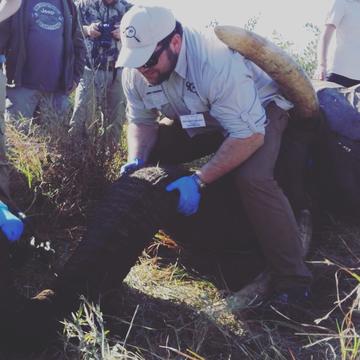
Wynand with a sedated elephant
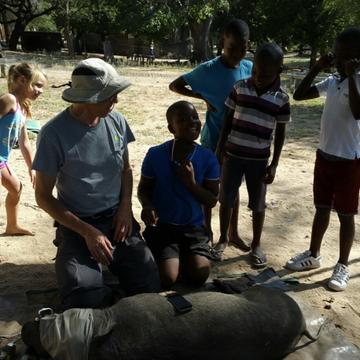
A group of future vets working on a warthog
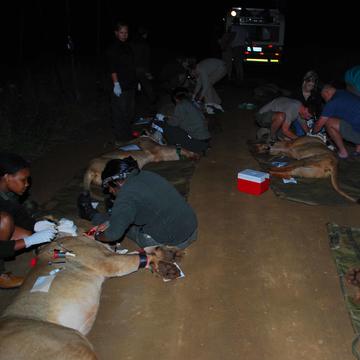
Working with captured and sedated Lions
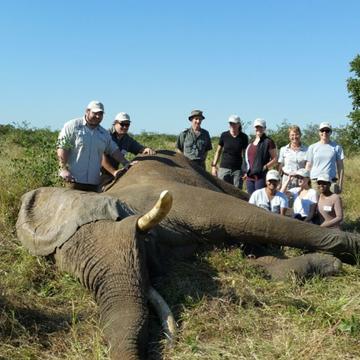
The Animal TB Team with a sedated elephant
Request a talk
https://forms.office.com/Pages/ResponsePage.aspx?id=G96VzPWXk0-0uv5ouFLPkVy349ij7e5Npig2JiL3VHlUN08xVDFLRENNWjVJNVMzN1ZVSzEwODJRVy4u&embed=true
